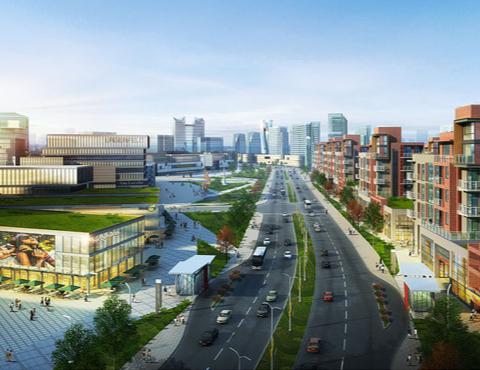NYC Mayor Needs Analytics In His CornerNYC Mayor Needs Analytics In His Corner
Mayor de Blasio needs more than public support to advance his plans for jobs, education, and public safety. He must harness big data.


Internet Of Things: 8 Cost-Cutting Ideas For Government
Internet Of Things: 8 Cost-Cutting Ideas For Government (Click image for larger view and slideshow.)
New York City Mayor Bill de Blasio's inaugural State of the City remarks set an ambitious, liberal agenda. Covering topics including income inequality, education, and environmental sustainability, de Blasio will have his work cut out for him as he challenges some of the city's most deeply rooted problems.
One way his predecessor, Michael Bloomberg, worked to address city challenges was with municipal data analytics programs and an overarching, data-driven mindset. Building on Bloomberg's successes with data policies and applying lessons from other cities, de Blasio can make great strides toward improving the quality of life for New York City's 8.3 million residents.
Jobs and economic development
Mayor de Blasio has proposed a variety of measures around job training, including creating a system to connect jobseekers with various programs. Centralizing data from the city's various unconnected job-placement systems is a step in the right direction, but New York should also apply analytics to match jobseekers with jobs and training opportunities. Such systems, deployed in the private sector, could broaden opportunities for the city's nearly 700,000 unemployed workers.
[Municipal demands are getting more sophisticated every day, and IT must keep up. Read Why Smart Cities Need Cloud Services.]
De Blasio also plans to promote economic growth through expanded small-business development. This initiative includes simplifying the city's complex municipal contracting process to be more accessible to local businesses, a process that open data can improve. Philadelphia and Chicago have experimented with treating procurement requests, even small ones, as open data, letting government officials and respondents find, mark up, and comment on proposals for potential city contracts.
Education
The mayor is also focusing on the city's education system, with the goals of improving graduation rates, prioritizing limited teaching resources, and maximizing the quality of elementary and secondary schools.
To accomplish those goals, the city must embrace large-scale analysis of student records and teaching assessments to provide more accurate data on what's working and what isn't. But de Blasio has opposed efforts -- specifically through the not-for-profit inBloom -- to consolidate student data in support of analysis and personalized learning. Insights to be gleaned from student data won't be available as long as that information remains siloed in individual schools and systems that don't interoperate. The mayor must rethink his position.
Resilience
Securing the city against natural disasters is another key part of de Blasio's agenda. For starters, the mayor must maintain his predecessor's commitment to disseminating information, including mapping and data visualization, in times of crisis. During 2012's Hurricane Sandy, government technologists enlisted the data science community to update evacuation maps with minute-to-minute flood predictions, and they drew on open data sources to map shelters and recovery centers. Information is never more precious than during a disaster, and smart, responsive data dissemination can save lives.
But even before disaster strikes, data analysis can identify vulnerable buildings and neighborhoods to help the city direct its infrastructure upgrades and retrofitting. New York City already has combined data from building inspections and fire incidents to identify the buildings most vulnerable to deadly fires, and the new mayor has an opportunity to expand this strategy to predict other disasters.
Sustainability
Promoting green standards for building construction and renovation covers only a fraction of an average building's lifespan. De Blasio could take those plans further by promoting in-building power monitoring for existing structures. There, he should take a cue from a project funded by the US Department of Energy that uses low-cost sensors to collect data on power usage, temperature, airflow, and occupant schedules to create a dashboard that alerts building occupants to when they should turn off a device, open a window, or take other energy-saving steps.
{image 1}
Crime and safety
The mayor's plans for policing, including increasing use of the audio-based gunshot-detection system ShotSpotter and expanding the data-driven gang-targeting initiative Operation Crew Cut, are on the right track. One area for improvement is in the use of open data. While the New York City Police Department has been reluctant to release granular data, de Blasio wants to change that approach, having given the NYPD a failing grade in transparency last year when he was still the city's Public Advocate.
The mayor also supports Vision Zero, a program that uses red light cameras and speed detectors to enforce safe driving. More data can alleviate the "he said, she said" problem of crash investigations, and de Blasio’s leadership in this area will undoubtedly inspire similar efforts in other cities.
New York City's vibrant community of data science startups and civic hackers are eager to help with most of the programs cited above. But first, the mayor must fully embrace a philosophy of data-driven innovation.
Engage with Oracle president Mark Hurd, NFL CIO Michelle McKenna-Doyle, General Motors CIO Randy Mott, Box founder Aaron Levie, UPMC CIO Dan Drawbaugh, GE Power CIO Jim Fowler, and other leaders of the Digital Business movement at the information Conference and Elite 100 Awards Ceremony, to be held in conjunction with Interop in Las Vegas, March 31 to April 1, 2014. See the full agenda here.
About the Author
You May Also Like






